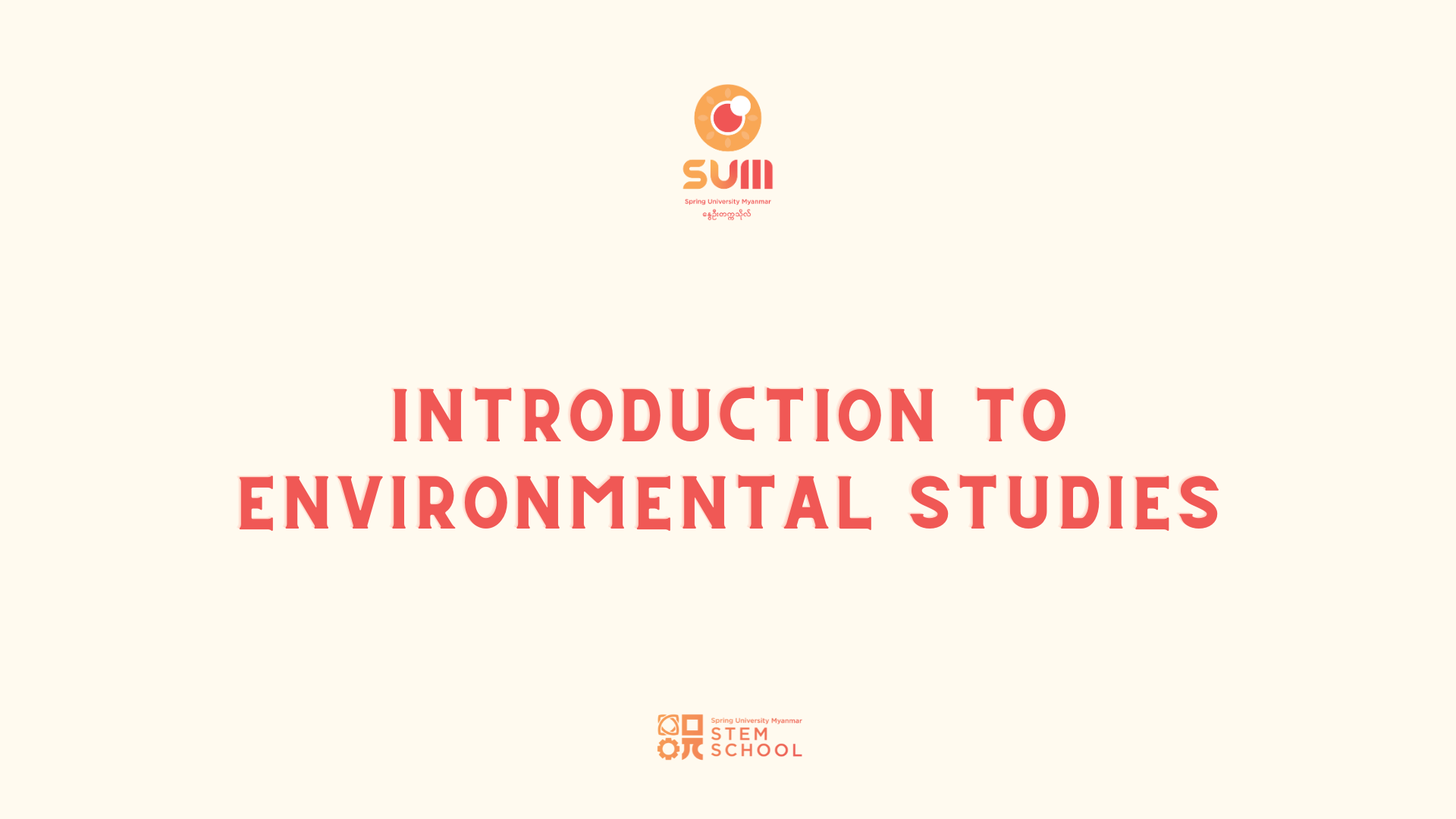About this course
This course offers a concise yet comprehensive exploration of environmental studies, emphasizing its multidisciplinary nature, covering core topics such as ecology, ecosystems, natural and nutrient cycles, and the balance between biotic and abiotic components. It addresses major global and national environmental challenges like biodiversity loss, climate change, and development pressures and examines environmental policies, legislation, and tools for monitoring and assessment. Students will learn about species and landscape conservation, climate adaptation and mitigation, sustainable practices, and the importance of green spaces and financing mechanisms. The course also emphasizes community engagement, public awareness, and decision-making through real-world examples and case studies from both global and Myanmar contexts.
Learning Outcomes
-
Upon successful completion of this course, students will be able to:
- Define and explain ecological and environmental concepts
- Identify and evaluate major environmental issues globally and nationally
- Compare environmental policies and tools in Myanmar and other contexts
- Apply ecological principles to ecosystem interactions
- Assess strategies for conservation, climate, and sustainability
- Demonstrate awareness of community roles and participation
- Propose practical solutions to environmental challenges
- Communicate findings effectively using case studies and real examples
Total Modules
- Introduction to Environmental Studies
- The Environment in Balance
- Global and National Environmental Issues and Challenges
- Environmental Policy and Legislation
- Environmental Measurement and Tools
- Sustainable Practices and Solutions
- Community and Public Awareness
20 lessons
Course duration
120 hrs
Course Type
Hybrid


